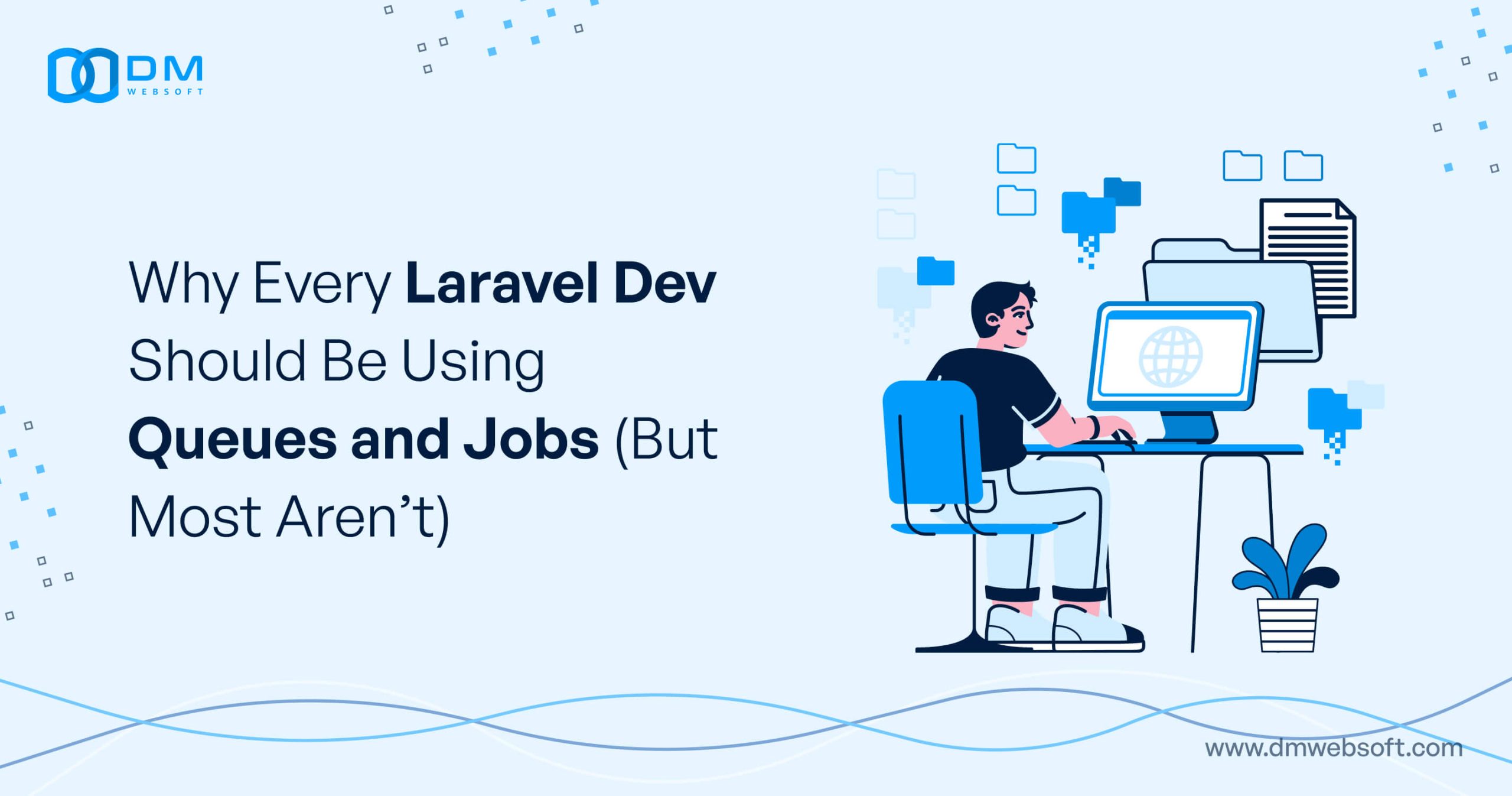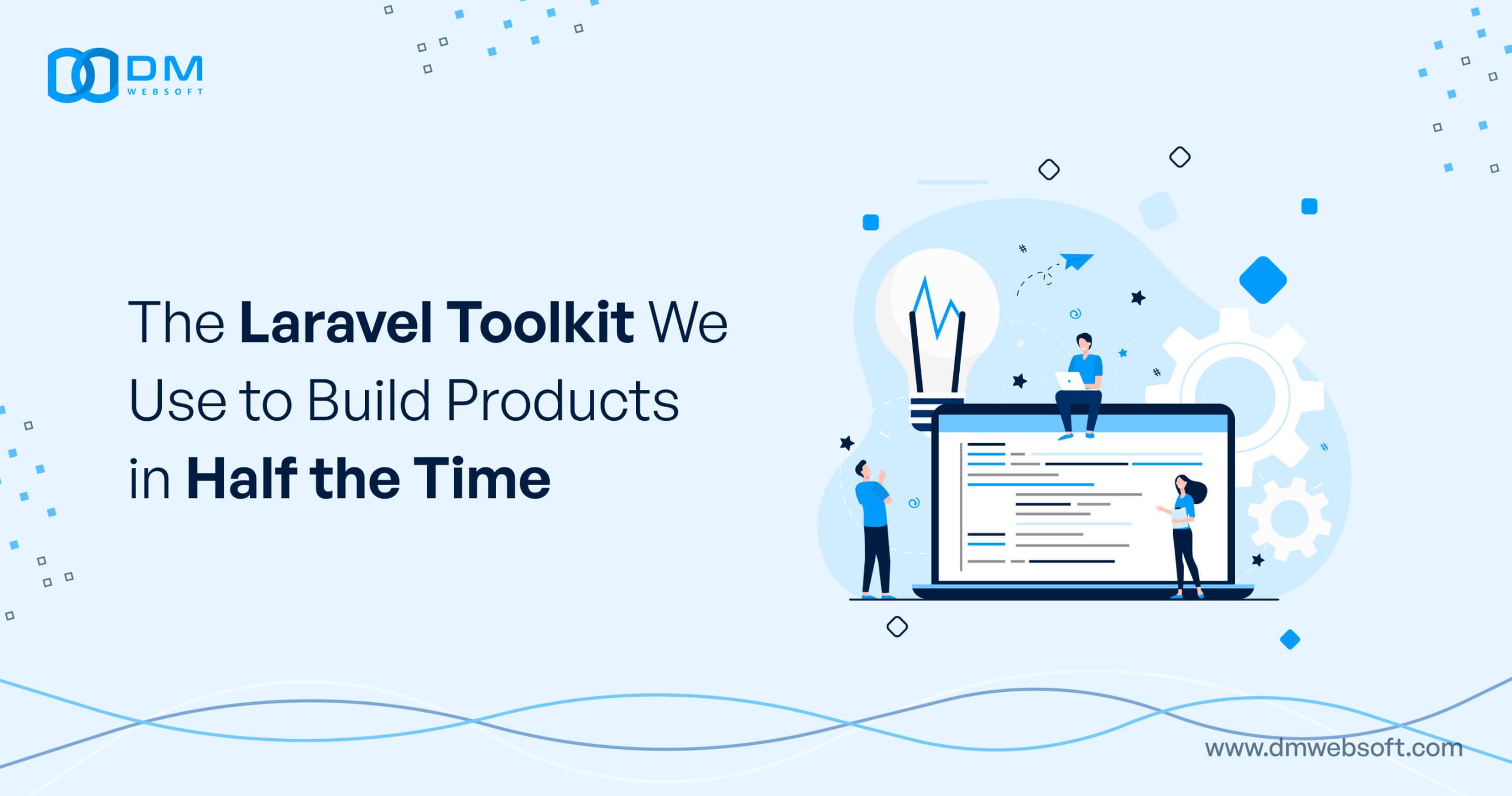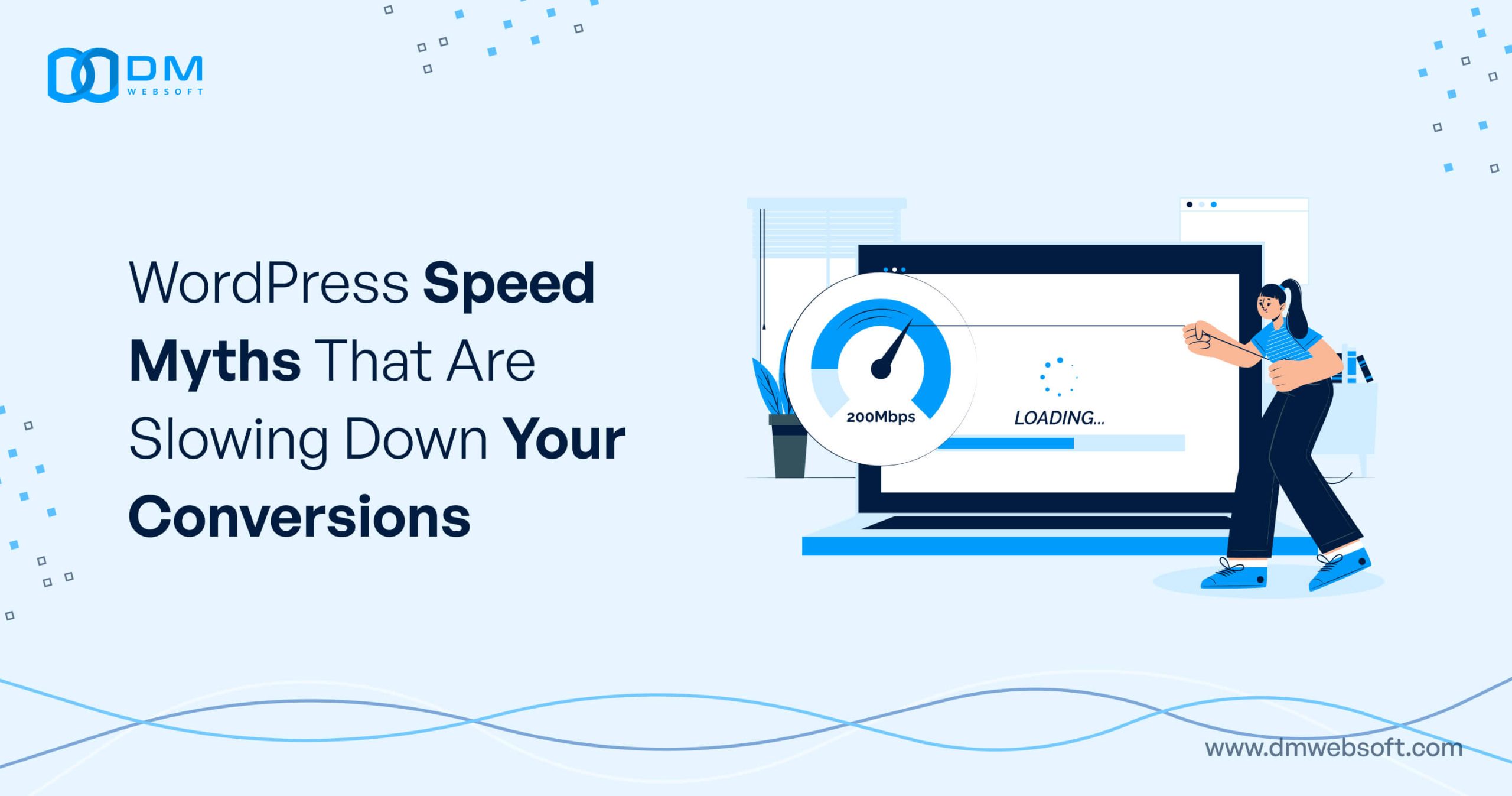DM WebSoft LLP exceeded our expectations! Their seasoned team of experts delivered a website that perfectly captures our brand essence. Their 15+ years of experience truly shine through in their exceptional web development skills.
The Role of Machine Learning in Google Ads Library and How It Can Improve Your ROI

TABLE OF CONTENT
Get in Touch
Introduction
Presently, the world is a fast-moving digital space, and to stay competitive, businesses have to be on top of their game. One of the best advances in digital advertising is using machine learning in the Google Ads Library and other similar platforms. It makes an optimal impact through advertisements, generates the right audience, and significantly increases business ROI.
Google Ads Library is a tool through which a marketer manages their campaigns accurately and efficiently. Machine learning technology, the powerhouse behind many features of analysis on real-time ad data, enables the identification of trends in understanding the drivers of performance to provide actionable insights that can boost performances. This kind of technology doesn’t automate all processes but is constantly advancing the targeting and personalization of ads to make campaigns more effective and efficient.
Machine learning in creating, managing, and optimizing ads: Bidding strategies adapt automatic delivery of ads to reach an interested audience with proper timing for maximum effect from each dollar spent on advertising. Responsive search ads test different combinations of headlines and descriptions on the fly to provide potential customers with the most effective ad copy.
This blog will delve into how, with machine learning’s critical role, the Google Ads Library can enhance digital advertising strategies. Take a deep dive into its key features and functionalities, discuss a few benefits if applied to machine learning, and further present real-world practical strategies for implementing such technologies. Besides, we will raise future trends in digital advertising and explain how DM WebSoft LLP can help you leverage these advances to take your dollar’s and ROI performance to the next level.
When organizations implement the use of machine learning with Google Ads Library, they can achieve higher performance and better targeting, which leads to better financial outcomes. Stay with us as we dig in on these insights and guide you through ways to optimize your digital advertising strategy with technology pushing the frontiers.
Understanding the Google Ads Library

The Google Ads Library is a potent platform utilized to control and empower digital advertising campaigns. The tool is an essential ingredient in the arsenal of any marketer who wants to reach out to her target audience most quickly and effectively possible. Let us, hence, read on about some of the offerings of the Google Ads Library and how it utilizes machine learning to take its offerings a notch above.
About Google Ads Library
The Google Ads Library is a central point for creating, managing, and analyzing ads. It receives all types of ads: search, display, video, app, and others, thus being flexible when it comes to allowing advertisers to choose the most appropriate medium. This capability would allow even people with little technical experience to create and refine campaigns.
Key Features and Functionalities
- User-Friendly Interface: The Google Ads Library is a user-friendly interface intuitively developed to help users create and update advertisements. Advertisers could also manage how much money they spend, who should see their ad, and when and where it should appear.
- Customizable Campaigns: The platform, therefore, allows highly customizable campaigns, enabling the advertiser to tailor his ads to some concrete business goals, be it about boosting more brand awareness, driving traffic to websites, or sales increase.
- Real-Time Analytics: One of the stand-out features of the Google Ads Library is its ability to provide real-time data on ad performance.
- Data-Informed Decision Making: Click-through rates (CTR) and conversion rates are easily acquired, as well as the overall return on investment (ROI) metrics, which enable marketers to drive data-informed decisions.
- Detailed Reporting: Users can generate detailed reports to gather insights into the performance of their campaigns; in short, it delineates an area for improvement and success.
Machine Learning
- Automated Bidding: The algorithm of machine learning will automatically set a bid to ensure that the maximum campaign performance is achieved. The purpose is to ensure that ads are shown to the relevant audience at the least cost, making ad spending efficient.
- Responsive Search Ads (RSAs): Automatically test different permutations of headlines and descriptions to find the most effective variations. This uses machine learning to enable the constant optimization of ad copy with user interaction and engagement.
Machine Learning Integration
This is another purpose the Google Ads Library serves. The increased smartness and efficiency in managing ads are because of machine learning. Machine learning algorithms analyze considerable real-time data and give actionable insights that help advertisers optimize their campaigns. This is how machine learning is imbued within the Google Ads Library:
- Automated Bidding Dynamic Adjustments: It uses machine learning for real-time adjustments based on the behavior of users about device type and location, ensuring that each ad serves the best audience segment, which brings more conversions and ROI.
- Responsive Search Ads (RSAs) Continuous Optimization: With machine learning, optimization algorithms ran tests on different combinations of headlines and descriptions to understand which works best. It keeps working to make ads relevant and performing on the go even more.
- Real-Time Data Analysis and Optimization Performance Monitoring: Machine learning is a performance monitoring system for the ad, and it continues to monitor the performance of the ad and make adjustment actions in real-time to keep the campaigns optimized.
That decreases the level of manual intervention needed and puts the spotlight on strategically doing things.
At DM WebSoft LLP, we specialize in leveraging the Google Ads Library to its fullest potential. It is in our integration with machine learning algorithms that your advertising can thrive. Experience more user engagement, better ROI, and an overall improvement in user experience when you work with us. Allow us to accompany you through this complexity and help you unlock the full potential of your ad campaign.
Conclusion
Machine learning is what makes Google Ads Library very strong, with enormous potential that any business should take maximum advantage of in digital advertising. These tools are so powerful that no other tool can beat the best possible optimization for the ad campaign with features such as automated bidding, responsive search ads, and real-time performance monitoring. Partner up with DM WebSoft LLP to gain access to these tools and be on the next stage in your advertising strategies.
How Machine Learning Makes Google Ads Better

Machine learning has always been a game-changer in digital advertising. The use of machine learning within the Google Ads Library has introduced new and fascinating changes that automatically manage and optimize campaigns. In this module, we are going to talk about how machine learning makes Google Ads better with the use of automated bidding and responsive search ads, complemented by real-time data analysis and optimization.
Google Ads Automation
One of the most powerful features of machine learning technology is Google Ads automation. It takes all the guesswork out of how bids should be set. By nature, dynamic bid adjustments are real-time bid optimizations done with the help of machine-learning algorithms, analyzing historical data and current context. This guarantees your ads reach the right people at the right time and at a compelling price that supports good ad performance and ROI.
- Efficiency and Accuracy: Since you are bidding automatically, marketers need not spend time making manual adjustments over and over. This very fact ensures more accurate bidding and better overall campaign performance.
- Target CPA: With this strategy, your bids are automatically set to help get as many conversions as possible within the target cost per acquisition you set. This is ideal for businesses driving specific actions such as form submission or sales.
- Target ROAS: Helps adjust your bids to get the most possible conversion value at your chosen return on ad spend. This is ideal for businesses that want to raise revenue with respect of advertisement expenditures.
- Maximize Clicks: Very useful in case one needs to get as many clicks as possible within the budget at hand—a sound strategy to raise website traffic.
- Enhanced CPC (Cost Per Click): Automatically adjusts your manual bids to help you increase conversions while still being able to control your keyword bids.
- RSAs: RSAs use machine learning to dynamically test different combinations of headlines and descriptions, providing each user with the most effective ad copy. This increases ad relevance and performance so that a user has a better chance of engaging and converting.
Dynamic Ad Creation
- Multiple Variations: With multiple headlines, advertisers can enter up to 15 headlines and with multiple descriptions, up to 4 descriptions. Machine learning then tests different combinations to find those that work best.
- Continuous Optimization: As it acquires more data, the system learns which combinations work best and, in this way continuously improves ad performance over time.
Benefits of RSAs
- Larger Reach and Relevance: Testing various combinations guarantees your advertisements are tailored toward an individual’s particular search queries, thus potentially bringing you more clicks.
- Time Saved: RSAs do this work automatically instead of making and testing a few varieties of ads manually; hence, it saves a lot of time and effort.
- Performance Monitoring Continuous Tracking: The machine-learning algorithms track ad performance on an ongoing basis and note trends or anomalies that might need adjustment.
- Real-Time Adjustments: With data in mind, it can make real-time adjustments regarding bids, targeting, and even ad copy to maximize results immediately.
- Data-Driven Decisions: Advertisers will obtain actionable insights from the analysis of data in making informed decisions about campaigns. Detailed performance reports give the advertiser an insight into what exactly is going right with their campaigns and exactly where improvements need to be made.
Our company specializes in enhancing Google Ad campaigns with machine learning as a skill at DM WebSoft LLP. Results from your ad spend are continually optimized to succeed with automated bidding and expertise in responsive search ads. Let’s get to that next level of engagement and ROI together.
Conclusion
The Google Ads Library is integrated with advanced machine learning capabilities, including automated bidding and responsive search ads, for real-time data analysis. These tools help businesses optimize their advertisement efforts, enabling the right message to reach the correct audience at the required time. Partner with DM WebSoft LLP to leverage these technologies fully and improve your overall digital advertising performance and ROI.
Enhanced User Engagement through Personalization
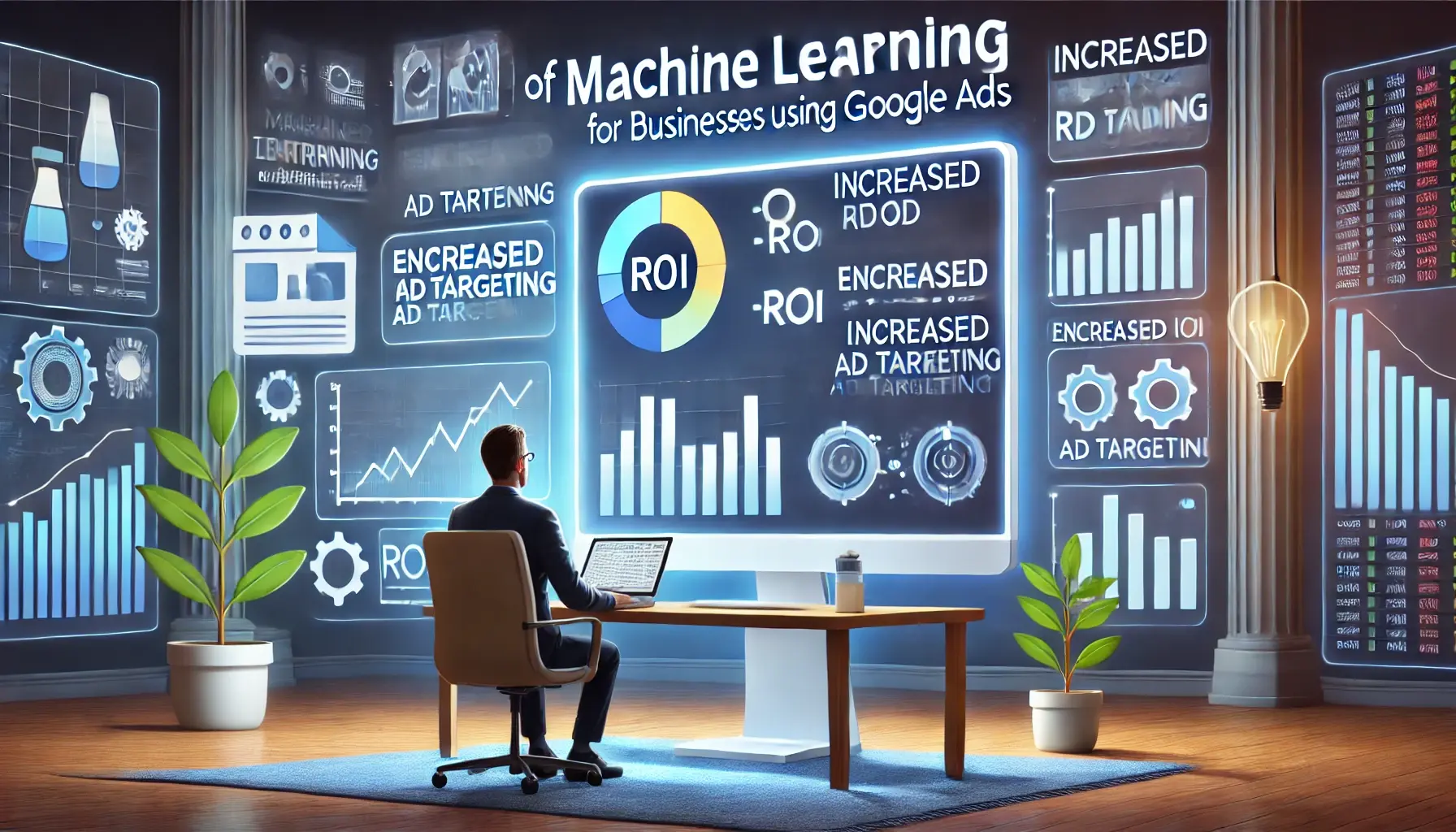
Machine learning enhances user engagement by delivering personalized ad experiences. Personalization in the ads created tends to trap users’ attention for conversion.
User Behavioral Analytics
- Insights through Data: Machine learning algorithms delve deep into the ocean of user data to expose trends and likings. This helps create very targeted and highly relevant advertisements, assisting advertisers to.
- Behavioral Targeting: With the help of machine learning, it can predict the ads that are most likely to click with user segments. This results in a practical, more targeted way to push user engagement and conversion.
Dynamic Ad Personalization
- Responsive Search Ads: Serve the purpose of testing varied ad copy combinations that include headlines and descriptions to bring about the most effective ad. The optimization is ongoing, which means ads displayed to users are always relevant and intriguing.
- Tailored Messaging: Machine learning enables advertisers to fit messaging to the tastes and behaviors of individual users. Users receive personalized messaging, which increases user experience and hence conversions.
At DM WebSoft LLP, we leverage machine learning to gain maximum productivity from your digital ad campaigns. Using this expertise in automated bidding and personalized ad creation with real-time data analysis, you can indeed advertise efficiently, effectively, and at the maximum possible ROI. Partner with us, where high technology shall combine for you with high results in your digital advertising endeavors.
Conclusion
Therefore, there are several effects to the utilization of machine learning in the Google Ads Library: timesaving and resource-saving efforts for business, optimization of ad expenses, increment of ROI, and increase of users’ engagement through personalization; it can help companies bring about a more effective and efficient advertising strategy. Fully understand these advances while associating with DM WebSoft LLP for the best ad performance and returns on investment.
Strategies for Implementing Machine Learning in Google Ads
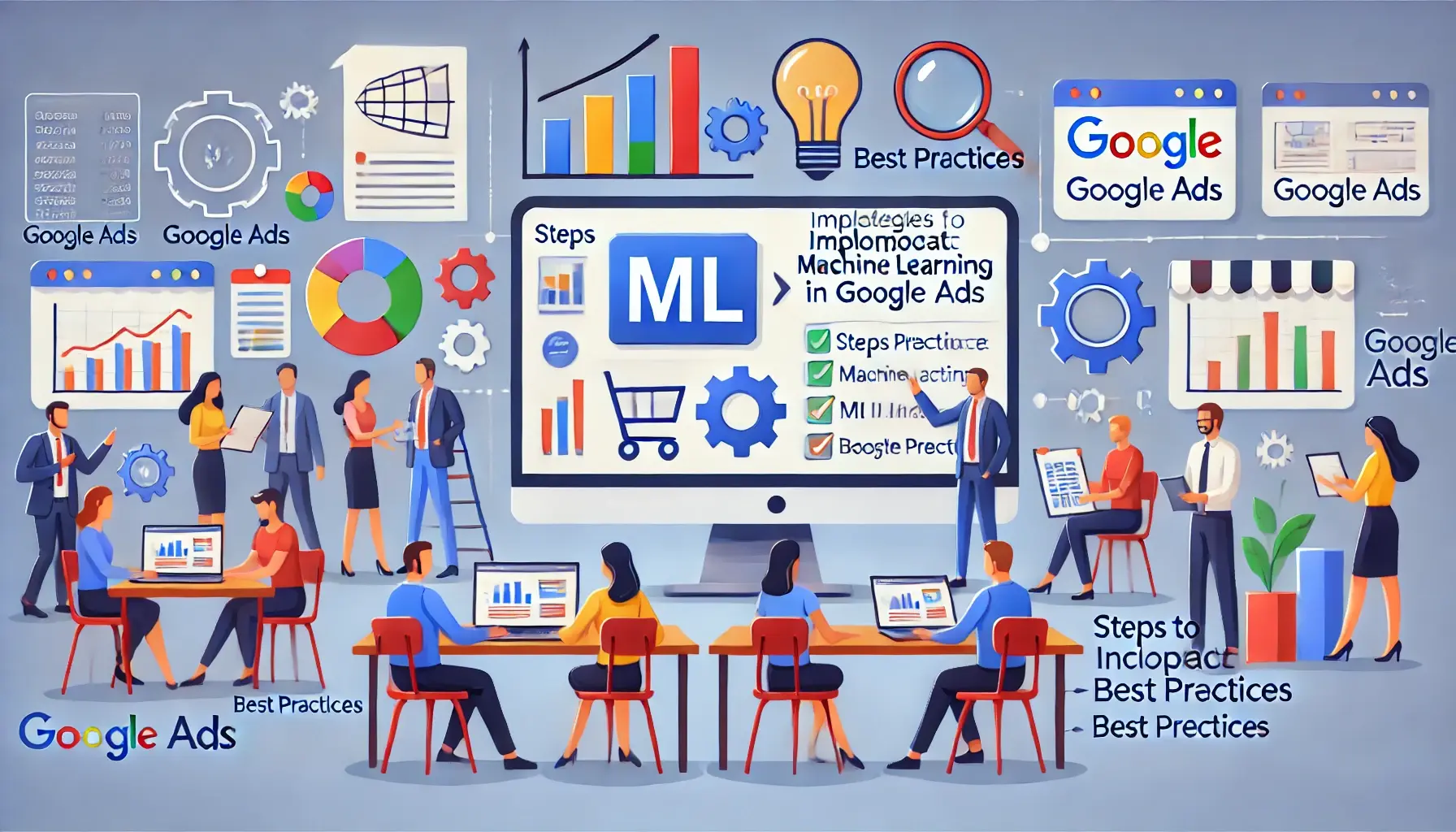
Implementing machine learning in your Google Ads campaigns can significantly enhance their effectiveness. By following strategic steps and best practices, businesses can fully leverage the power of machine learning to optimize their advertising efforts. This section will explain the main tactics of using Machine Learning within Google Ads, best practices while applying Automated Bidding and Responsive Search Ads (RSAs), and all necessary tools and resources for success.
How to use Machine Learning in your advertising
- Clear Goals: Clearly define what you intend to achieve through your advertisement campaigns. Whether your goal is an increase in conversions, to drive more traffic, or to improve brand awareness, set out some clear goals to guide your machine learning strategy.
- Google Ads Machine Learning Features: Use Google Ads machine learning, like automated bidding and responsive search ads. The above tools are meant to optimize performance as they analyze data and make real-time changes.
Collect and Analyze Data
- Data Collection: Gather data from previous campaigns to acquire insights about what worked and did not. Historical data is an important variable that can steer your machine-learning models.
- Data Analysis: Use analytical tools to evaluate such data and detect patterns. Knowing these patterns will lead to the successful setup of machine learning algorithms.
Use Automated Strategies
- Implement Automated Bidding: Employ automated bidding strategies like Target CPA and Target ROAS, and let machine learning handle your bids for optimization. This will ensure you serve your ads to the right audience at the right time.
- Use Responsive Search Ads: Create multiple headlines and descriptions for RSAs. Machine learning will test different combinations to find the most effective ad copy.
- Regular Monitoring: Keep a close eye on your campaigns and optimize based on data. Machine learning models work best when continuously updated with fresh data.
- A/B Testing: Carry out A/B testing to compare strategies and update your approach based on the result.
Best Practices for Automated Bidding and RSAs
- Set Clear Goals: Set specific goals using automated bidding strategies—Target CPA, Target ROAS, etc. It is essential to have concrete targets as they will assist machine learning algorithms in optimizing toward desired outcomes.
- Multiple Variations: Create multiple headlines and descriptions for RSAs to allow the algorithms to take many alternatives through testing. This provides a higher opportunity for the best ad combinations to be discovered.
- Performance Monitoring and performance Metrics: Keep an eye on performance metrics like CTRs, CRs, and ROI. Leverage it in making your campaign decisions.
- Modify Strategies: Run performance data to detect variations required within your bid strategies and ad copies. Optimization done continuously ensures sustained campaign success.
Tools and Resources to Implement Machine Learning
- Utilize Google Ads Recommendations: Google Ads has automated bidding and ad creation recommendations for achieving better performance based on machine learning insights.
- Other Third-Party Tools: One must also check out the other third-party tools working in conjunction with Google Ads through machine learning and providing further optimization.
- Invest in Training: Make sure your team knows how to use machine learning tools and strategies. Make investments in training and support to help grow your gains from machine learning.
DM WebSoft LLP is about applying advanced machine learning strategies to Google Ads campaigns. We could help you define clear objectives, select the best tools, and make sure that your ads are delivering an optimized performance. Engage with us to deploy best-of-breed technology in your efforts toward superior results in digital advertising.
Conclusion
Implementation of machine learning in Google Ads requires strategic planning, continuous optimization, and the use of the right tools. Adopting such strategies and best practices in all seriousness enhances the performance of ads served for businesses, hence the best ROI. Teaming up with DM WebSoft LLP means you get to utilize machine learning for unbeatable success in advertising fully.
Future Trends in Machine Learning and Google Ads
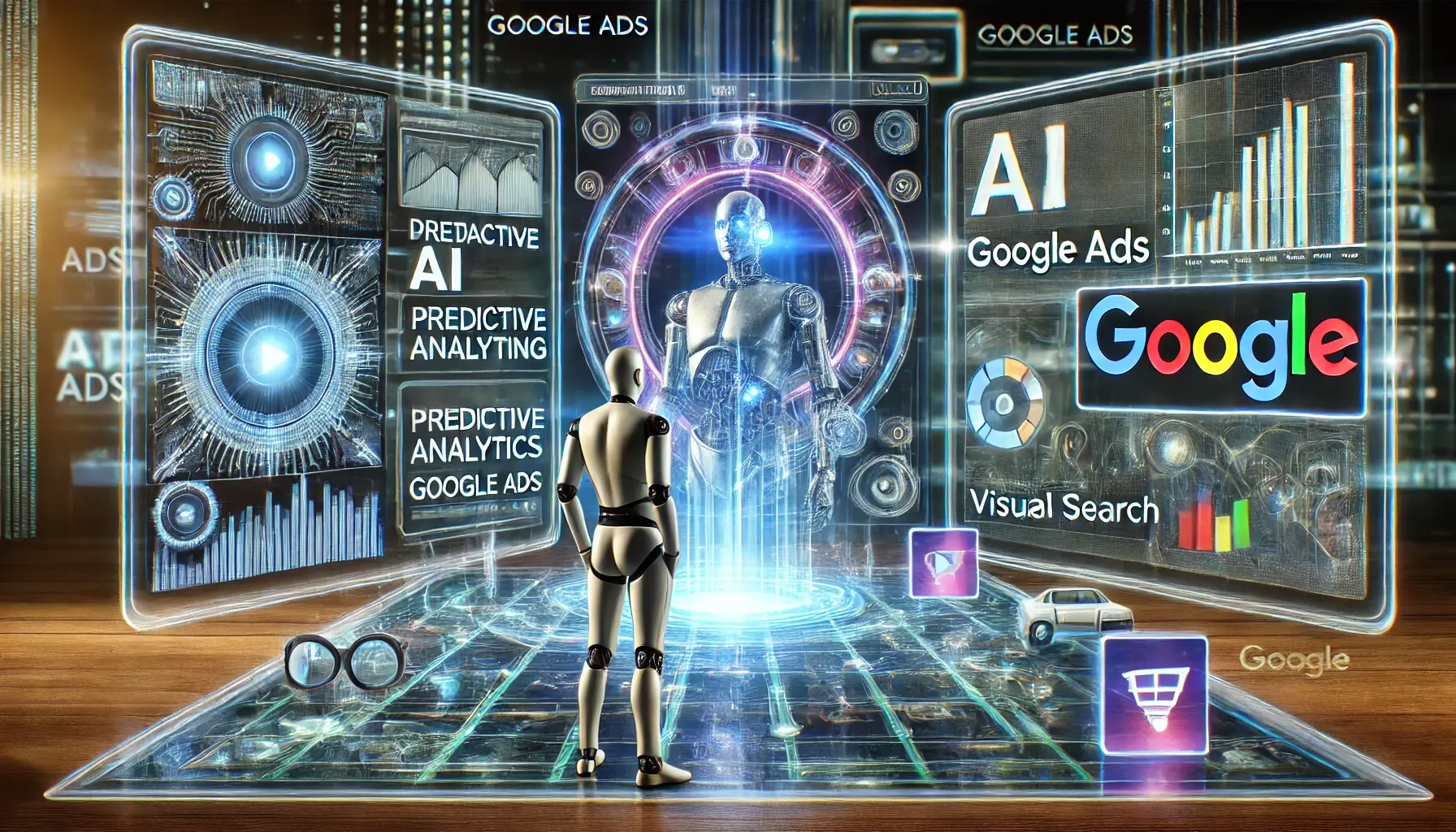
The field of digital advertising never stays the same; it is regularly changing with technology. Lately, it has been changing toward machine learning. However, in the future, some emerging trends and technologies may change how a business uses Google Ads to reach its target audience. Here we discuss some key future trends in machine learning and Google Ads: advanced AI technologies, predictive analytics, and voice and visual search.
Emerging Machine Learning Technologies in Advertising
- Dynamic Ad Creation: Next-level AI will enable real-time creation and optimization of ad creatives. This would enable the individual to analyze user behavior and preferences at any given point to weave out the most personalized and engaging advertisements.
- Deeper personalization: AI will help in making the personalization deeper because it is going to be better than ever at understanding user intent and context. It will result in improved ad relevancy, which resonates with individual users.
Predictive Analytics
- Predicting Ad Performance: Prediction analytics would have a noticeable place in the future of advertising. Historical data is utilized to search for patterns, and predictive models can forecast campaign performance and recommend optimizations before issues arise.
- Proactive Adjustments: Advertisers will make proactive adjustments to their campaigns ahead of time based on predictive insights so they will never be out of optimization regarding their ads.
Voice and Visual Search
- Voice Search Optimization: Machine Learning will take long strides towards optimizing the ever-increasing share of searches carried out by voice. That will mean being able to recognize natural language patterns and be able to deliver advertisements that align with a spoken user’s intention.
- Visual Search Capabilities: This search technology will enable the users to search using images rather than text. The system will analyze images for visual content through machine learning, delivering highly relevant ads based on objects or scenes within the image.
Conclusion
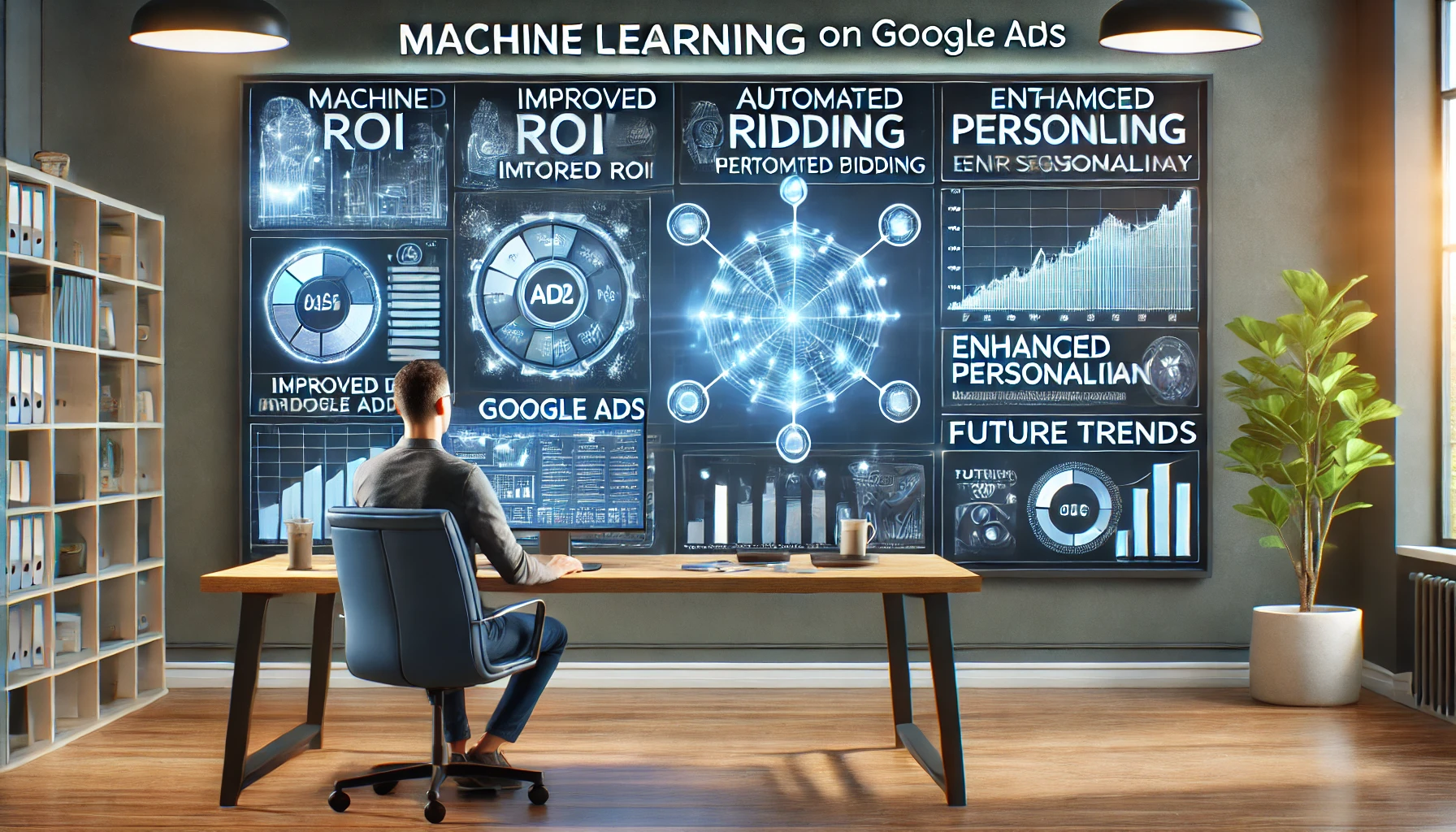
In conclusion, machine learning has changed the game for businesses, and its application within Google Ads Library is no different. But machine learning can be applied to bring about more efficiencies, better targeting, and significantly improved ROI if used astutely. In this blog, we take a close look at how vital machine learning in Google Ads is, some core features and advantages it presents, and some practical ways of using the technology.
With machine learning built into the Google Ads Library, your business can unlock unparalleled opportunities in optimizing its digital advertisement efforts. The benefit is that from automated bidding to real-time data analysis—your campaign will be optimized in the best way possible based on the innovative skills of the machines. To fully take advantage of these benefits, consider partnering with DM WebSoft LLP.
With our expertise in integrating machine learning with Google Ads, we will help you fetch the results that you have never witnessed before, thus ensuring the best ROI. Contact DM WebSoft LLP today to understand better what we do to guide you through the muddles of digital advertising and lead you to take advantage of machine-learning power for the ultimate edge your marketing strategy needs.
The Google Ads Library is a comprehensive platform for managing and optimizing digital ad campaigns, integrating features like real-time analytics and machine learning for enhanced performance.
Machine learning optimizes ad performance through automated bidding, responsive search ads, and real-time data analysis, ensuring efficient ad spend and better targeting.
Benefits include improved ROI, time and resource efficiency, and enhanced user engagement through personalized ad experiences.
Businesses should define clear objectives, utilize appropriate tools, collect and analyze data, implement automated strategies, and continuously optimize campaigns.
Future trends include AI-powered creative optimization, predictive analytics, and optimization for voice and visual search.
Get Started Now !
What’s the Process ?
Request a Call
Consultation Meeting
Crafting a Tailored Proposal
Get Started Now !
Real Stories, Real Results. Discover What Our Clients Say

Working with DM WebSoft LLP was a game-changer for our business. Their technical prowess and innovative solutions transformed our online presence. A highly recommended web development agency with a stellar track record.

We are thrilled with the results DM WebSoft LLP delivered. Their deep understanding of web development coupled with years of expertise ensured a seamless and visually stunning website. True professionals!

In a digital age where first impressions matter, DM WebSoft LLP crafted a website that speaks volumes. The team’s attention to detail and commitment to quality set them apart. Thank you for making our vision a reality.

DM WebSoft LLP’s team demonstrated unparalleled expertise. Their ability to navigate complex technical challenges with ease is truly commendable. Choosing them for our web development needs was the best decision.

Exceptional service, unmatched skills! DM WebSoft LLP stands out as a leading web development agency. Their collaborative approach and commitment to excellence make them our go-to partner for all things web-related.

DM WebSoft LLP turned our ideas into a digital masterpiece. The seamless communication and timely delivery of our project showcased their professionalism. Highly impressed with the level of creativity and skill.

Our experience with DM WebSoft LLP was nothing short of amazing. From concept to execution, their team provided top-notch web development services. A reliable partner for businesses looking to elevate their online presence.

DM WebSoft LLP’s team of tech experts is second to none. Their wealth of experience reflects in the quality of their work. Our website not only meets but exceeds industry standards, thanks to their dedication.

Choosing DM WebSoft LLP was the best investment for our web development needs. Their team’s proficiency, coupled with a customer-centric approach, made the entire process smooth and enjoyable. A pleasure to work with!



